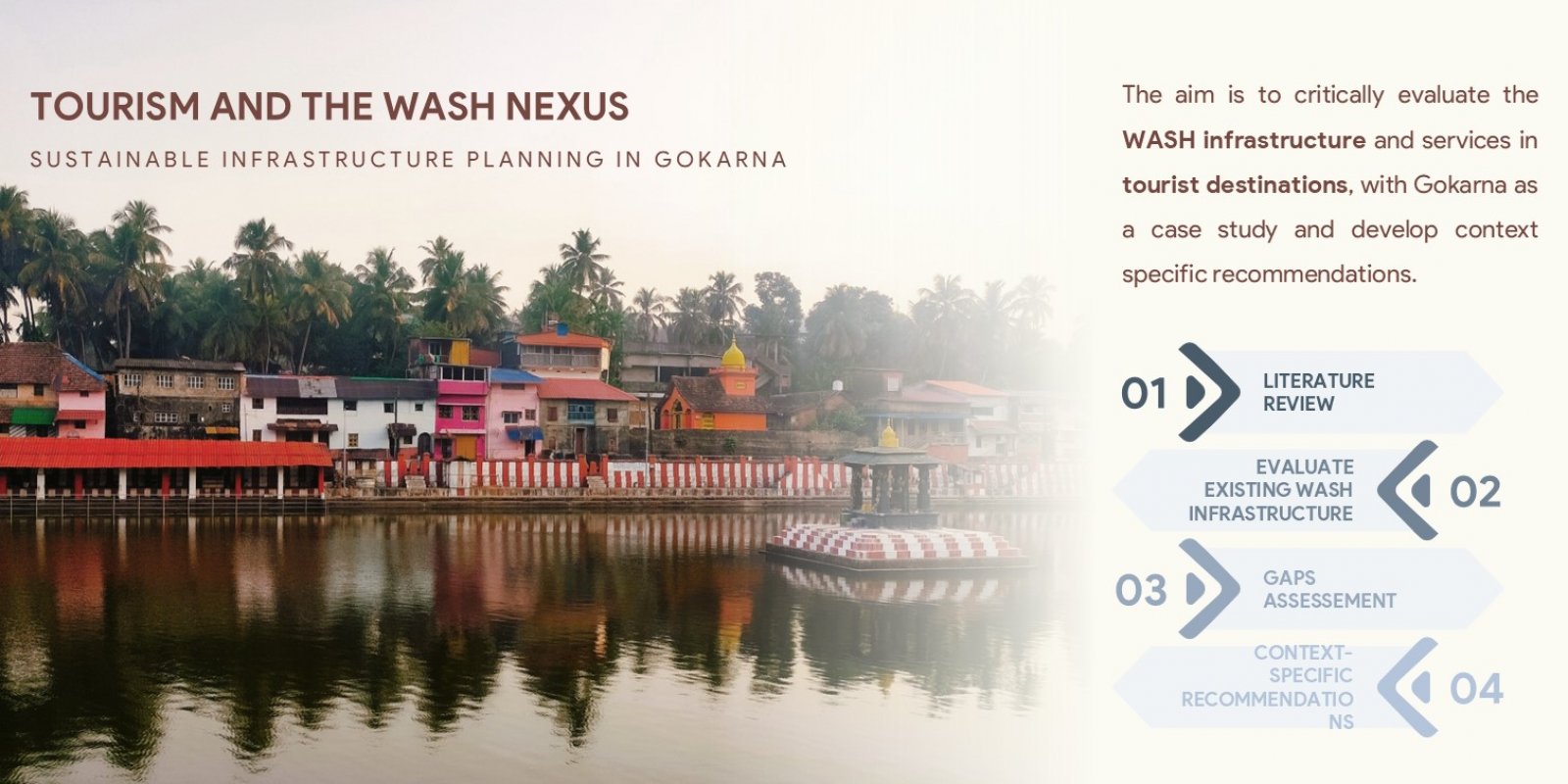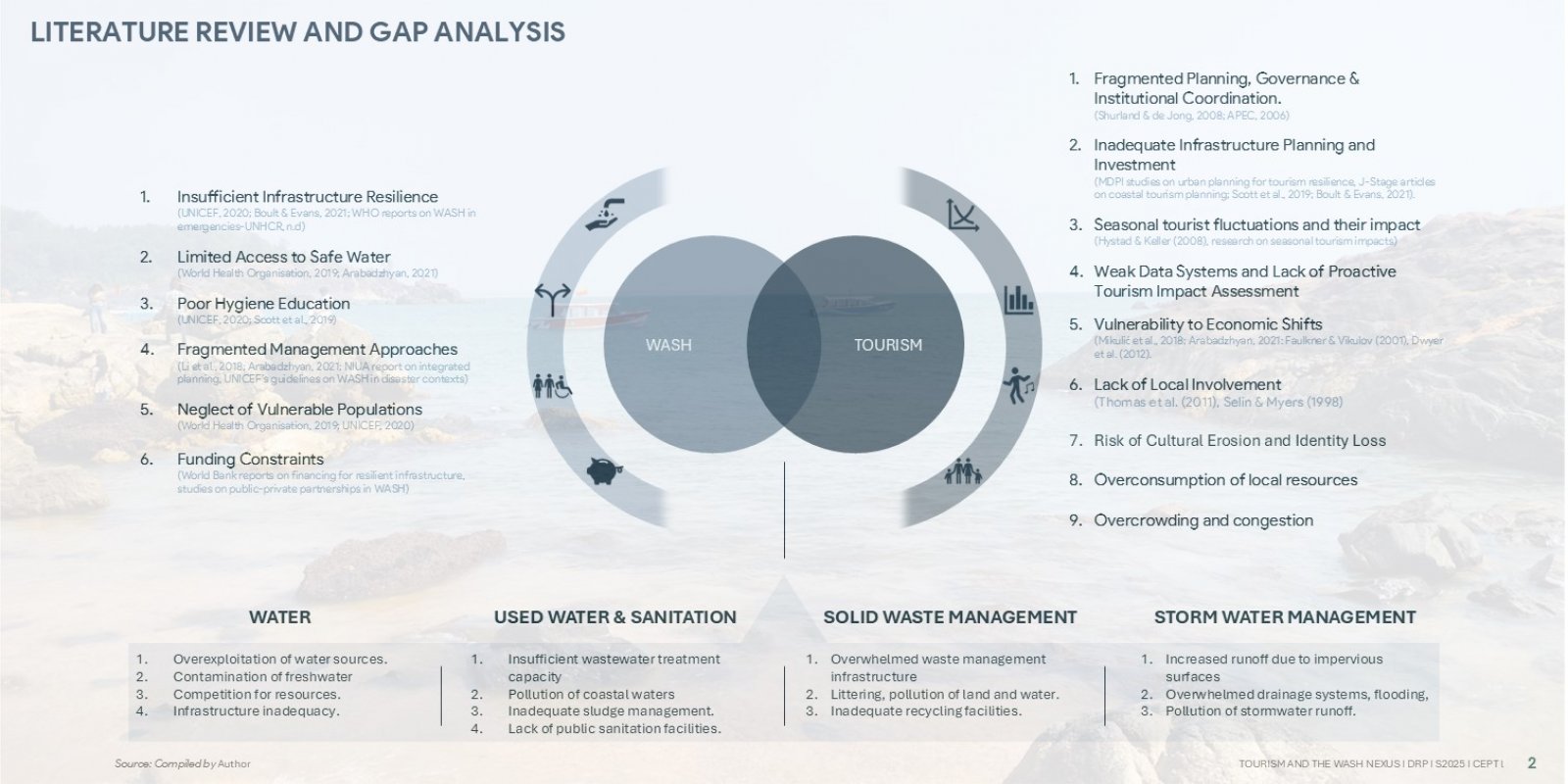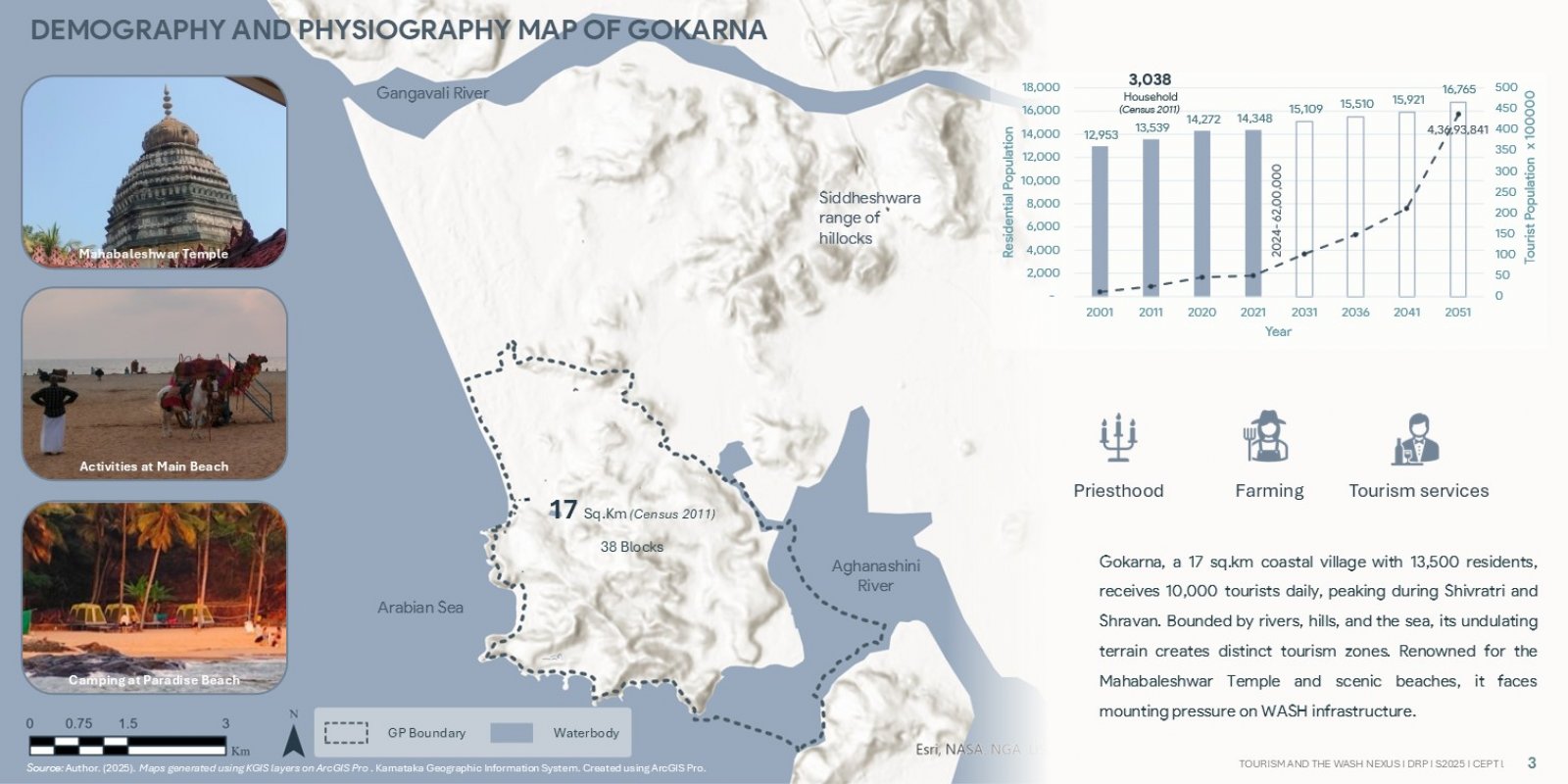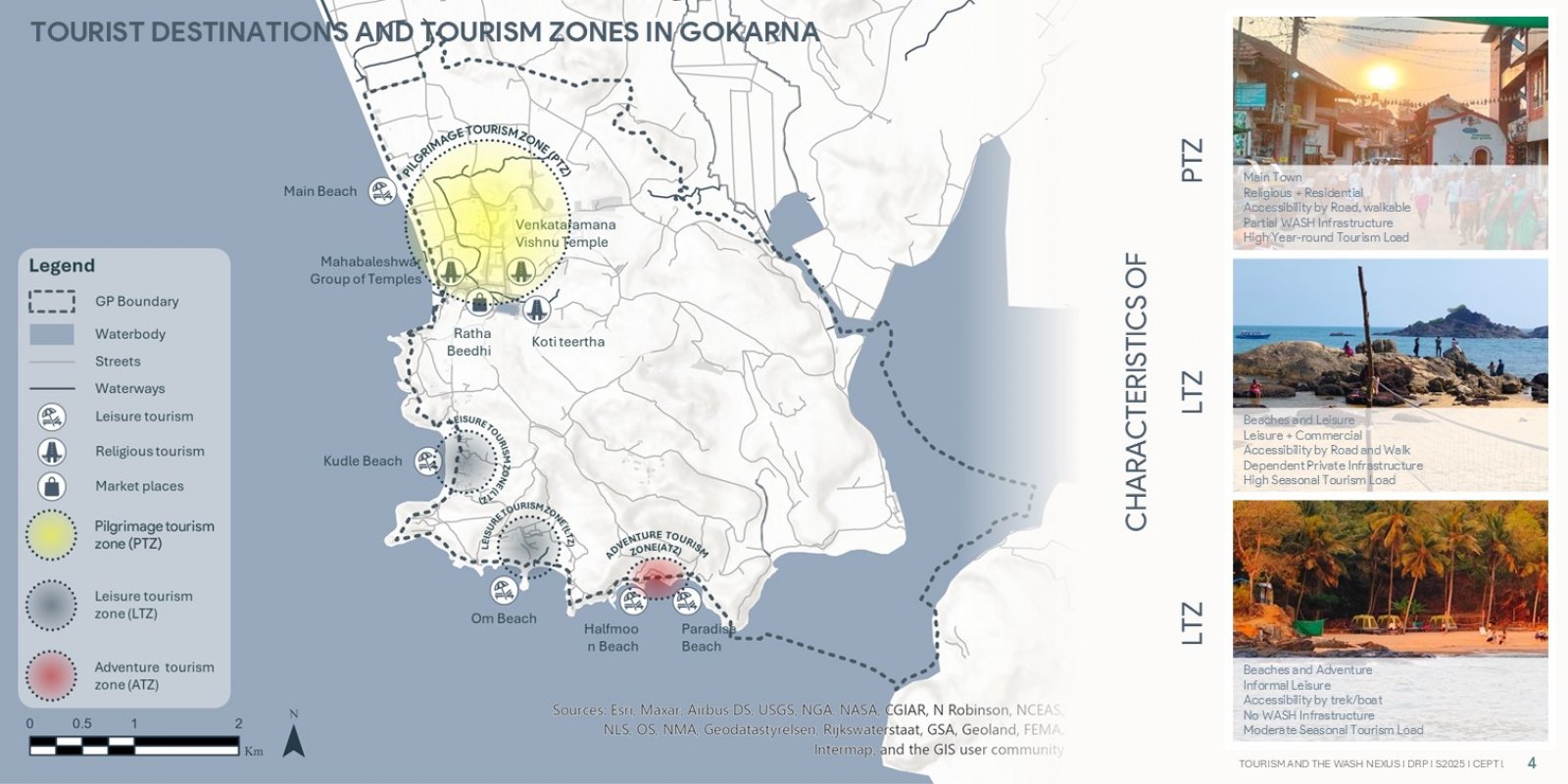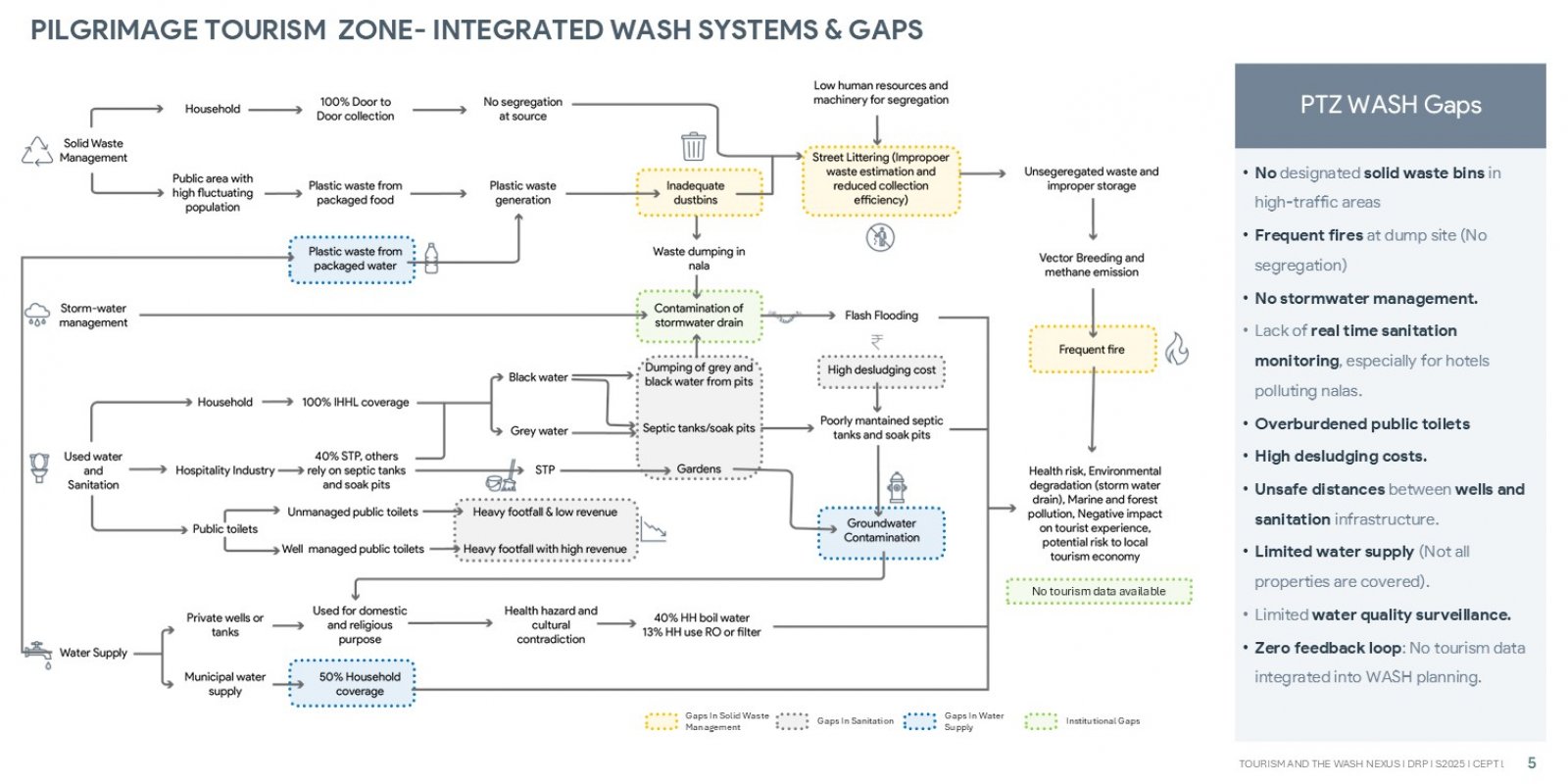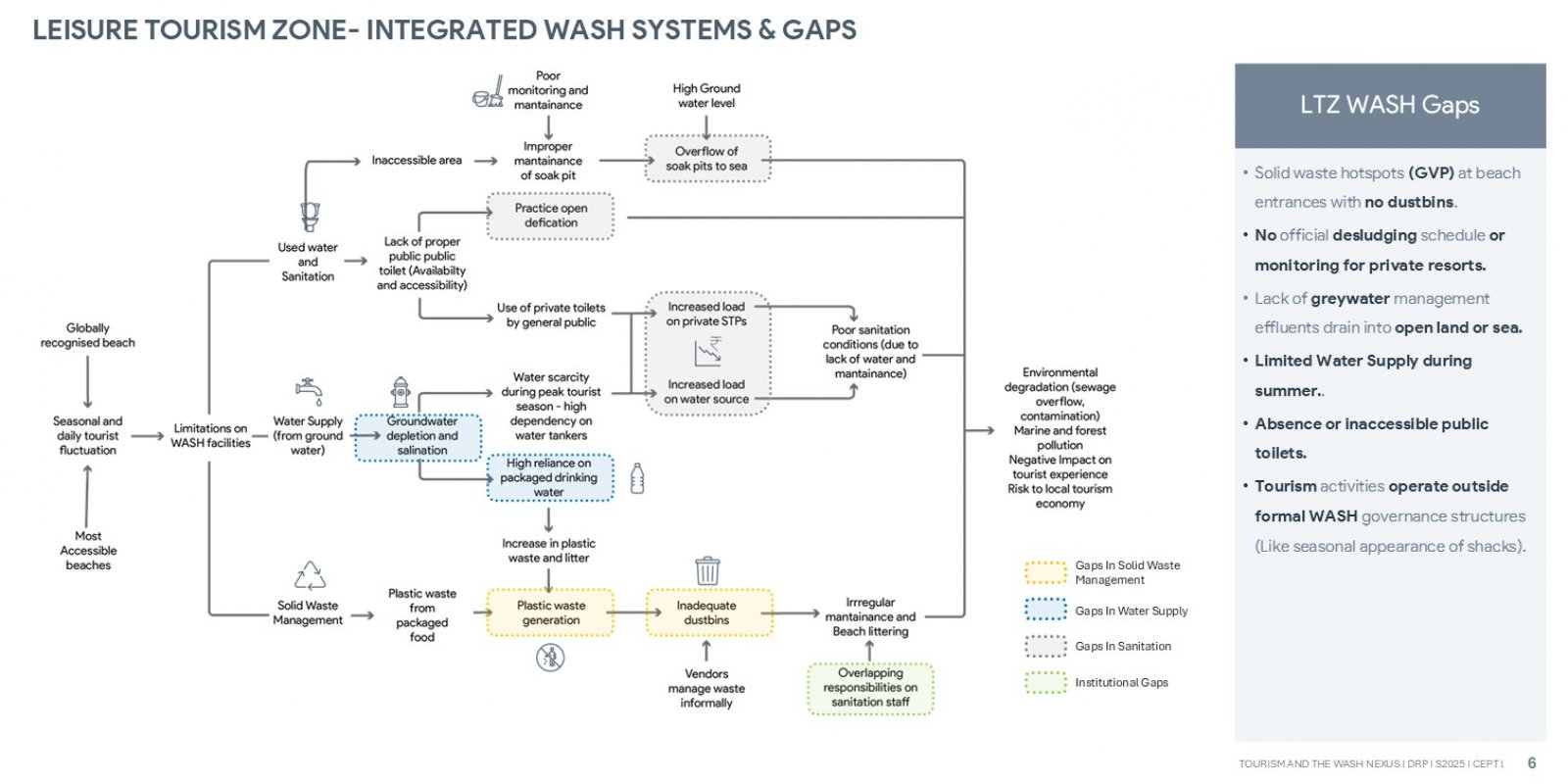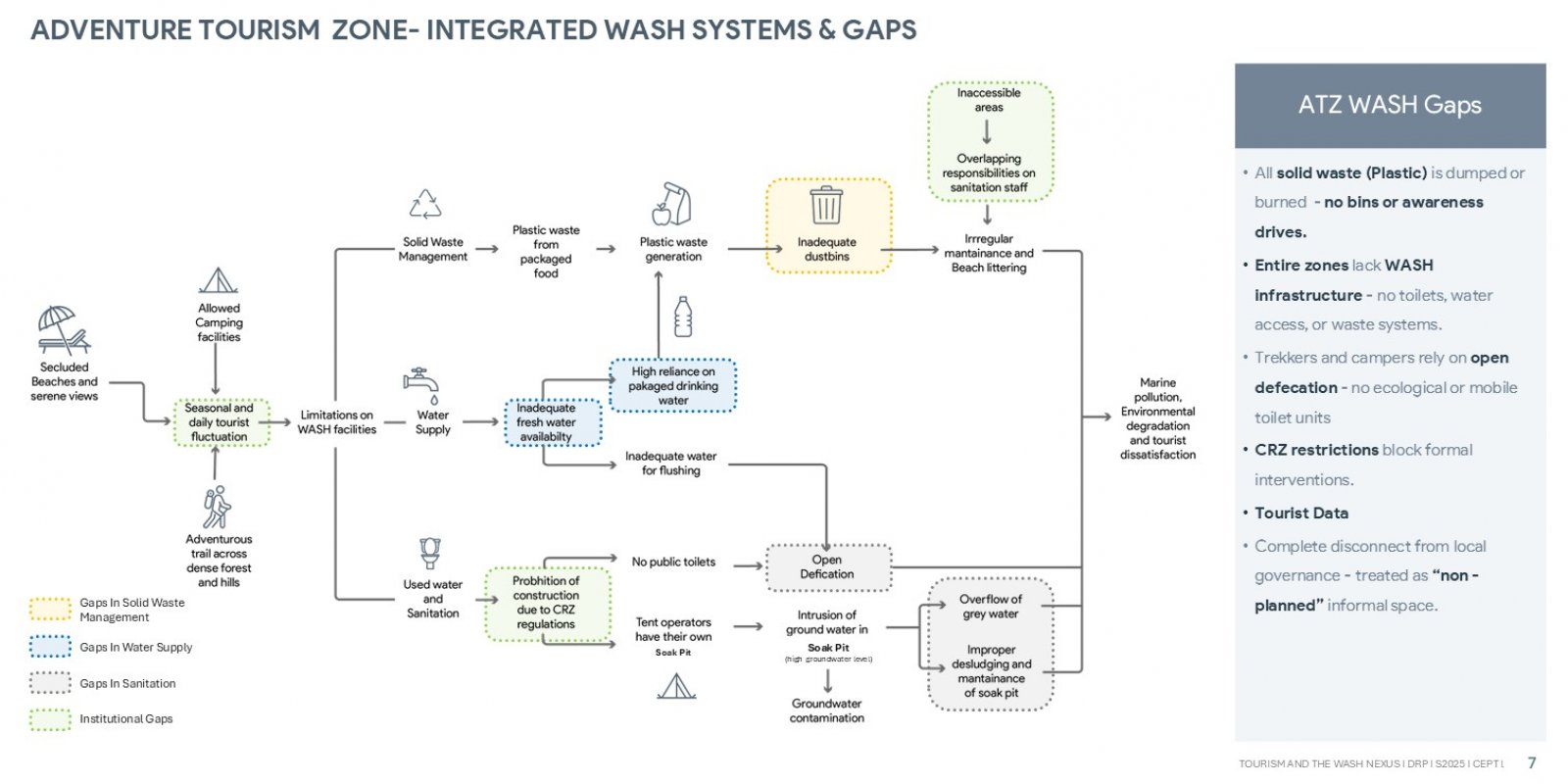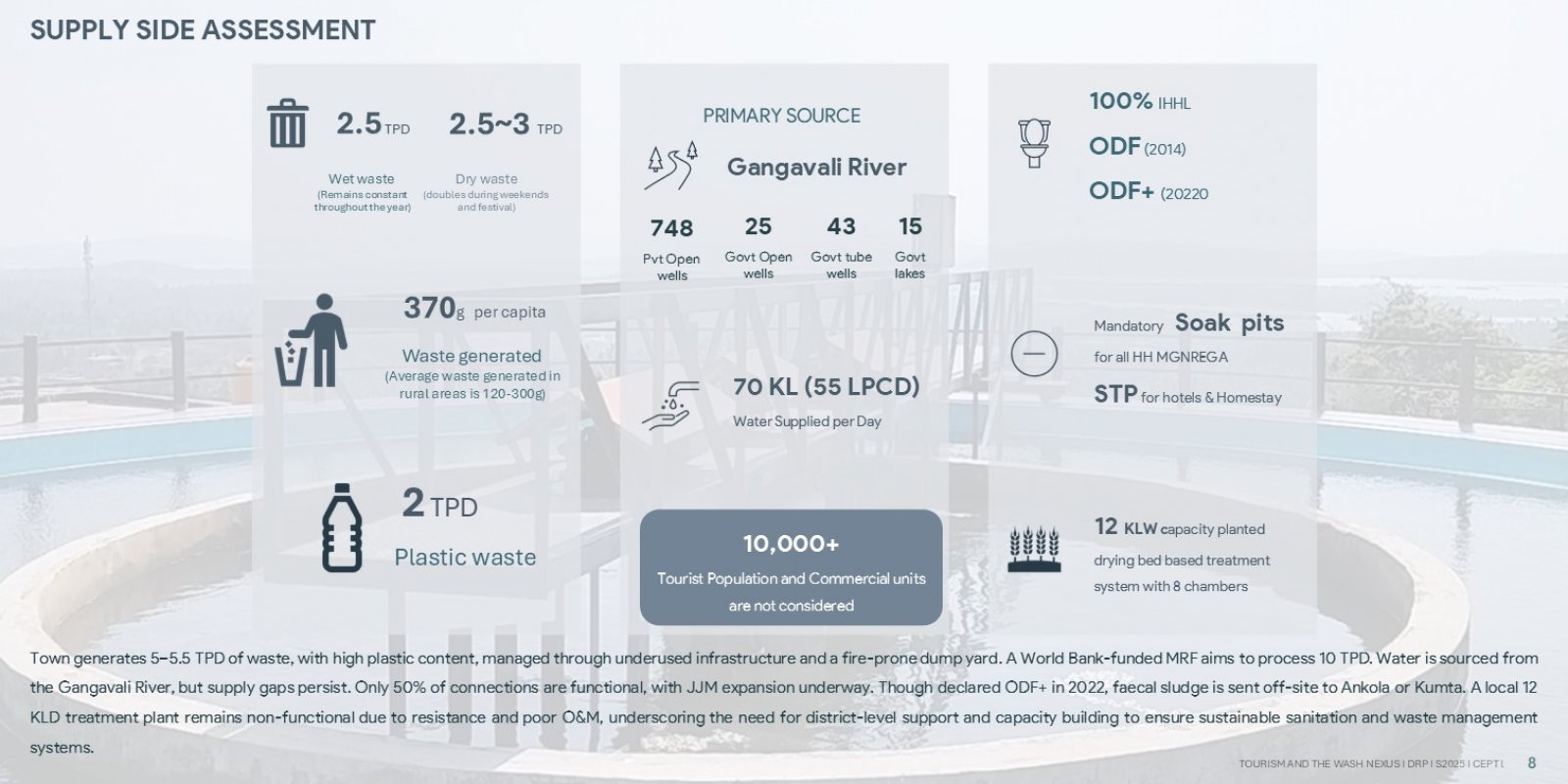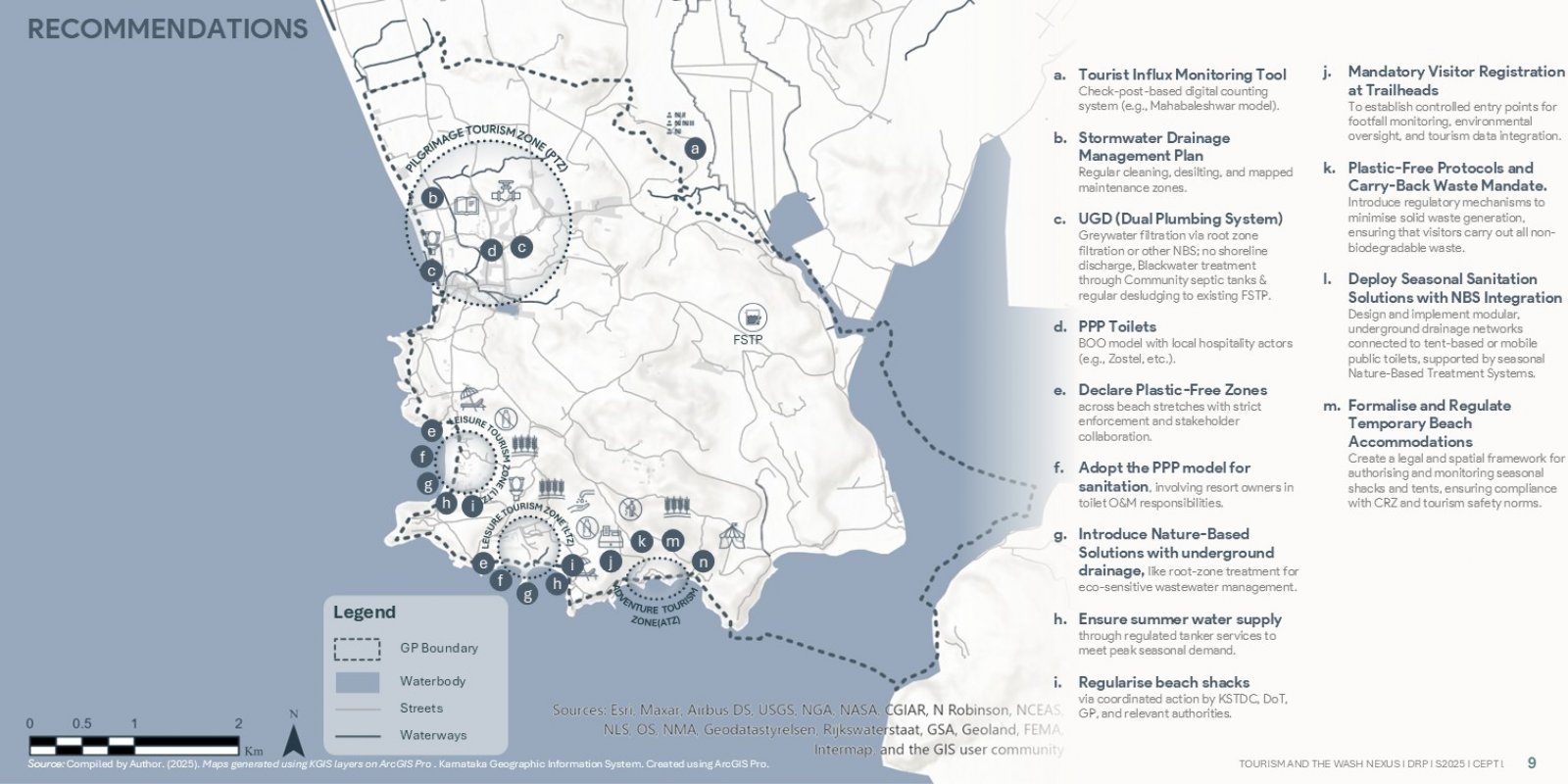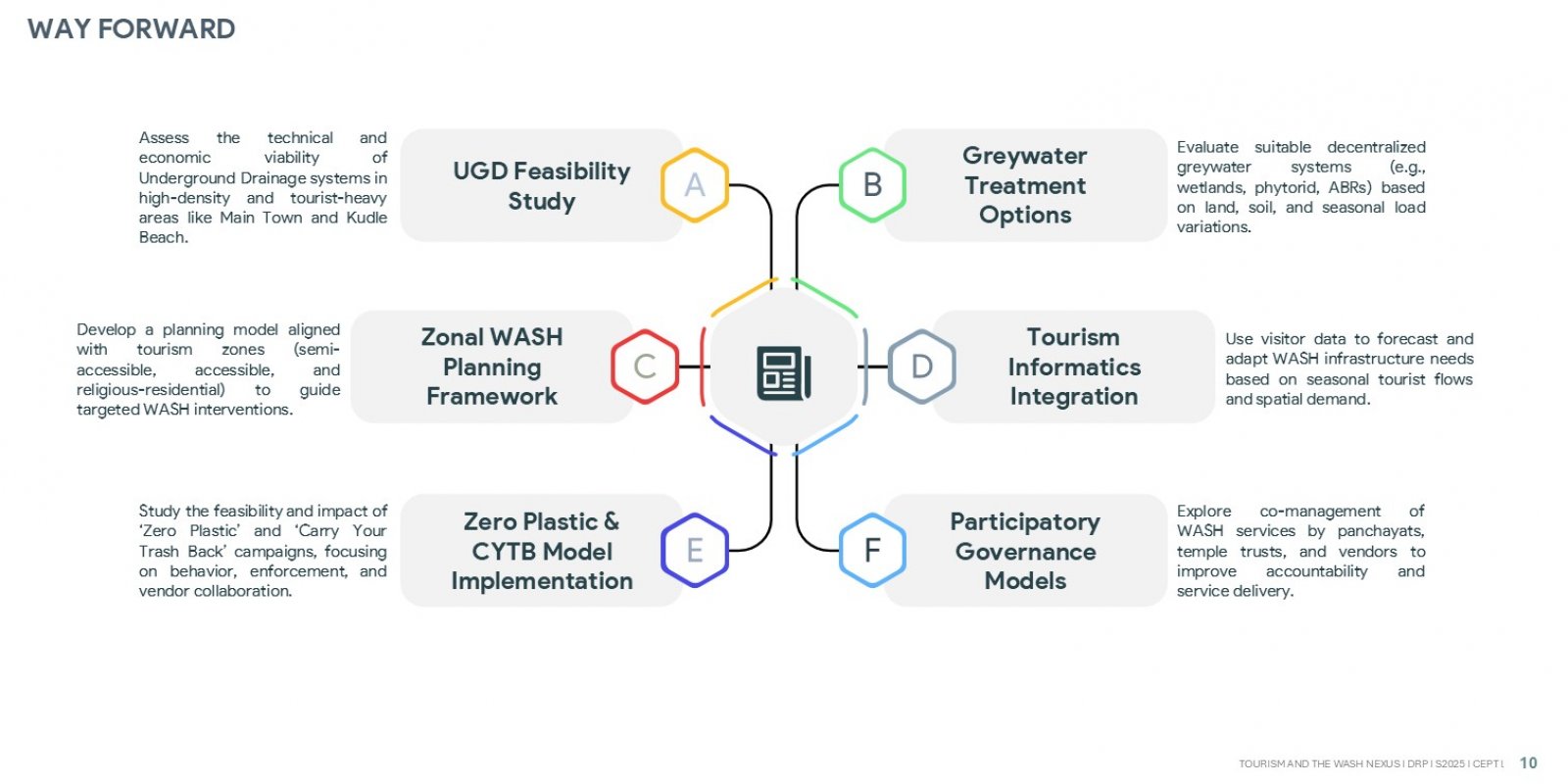Your browser is out-of-date!
For a richer surfing experience on our website, please update your browser. Update my browser now!
For a richer surfing experience on our website, please update your browser. Update my browser now!
This study investigates the intersection of Water, Sanitation, and Hygiene (WASH) systems and tourism infrastructure in Gokarna, Karnataka, an emerging coastal village with dual identities as a pilgrimage site and leisure destination. Through a spatially differentiated analysis, the research segments the village into three tourism zones: the religious-residential core, accessible leisure beach zones, and semi-accessible adventure zones. Each zone is assessed for its WASH vulnerabilities using secondary data, primary surveys, and geospatial mapping. Findings reveal systemic gaps in water supply, solid waste management, sanitation coverage, and stormwater drainage, exacerbated by seasonal tourist surges, institutional fragmentation, and regulatory constraints. Particularly acute are issues in the unregulated adventure zones and high-footfall religious areas, where informal infrastructure and inadequate governance lead to health and ecological risks. The study underscores the need for integrated, zone-specific WASH strategies that align with tourism planning, embrace decentralised service models, and ensure community participation. By foregrounding the spatial and functional disjunctures between tourism and essential services, this research contributes to more resilient and context-sensitive WASH governance in small Indian tourist towns.
